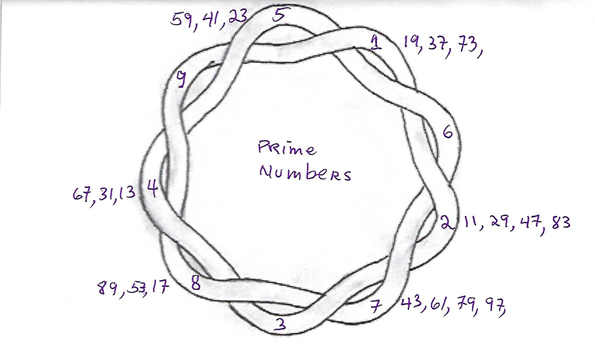Category Archives: Posts
HONI SOIT QUI MAL Y PENSE (SHAME ON HIM WHO THINKS ILL OF US)
ADDENDUM: THE ORDERING MODULE FOR PRIME NUMBERS
Here is a nice little construction for the ordering of prime numbers in tune with the doubling power of two of the well-tempered musical system.

GOTTFRIED LEIBNIZ AND FRIEDRICH SCHILLER: AN INVESTIGATION INTO THE PRINCIPLE OF THE BENEFIT OF THE OTHER
When Leibniz discovered the principle of pre-established harmony behind even and odd numbers, that is, when he found the means of ordering congruence and reciprocity among all counting numbers from the vantage point of a higher unity of principle between power and reason, he had acquired one of the most powerful ways of dealing with conflicting oppositions in war as in peace ever devised by mankind.
What I intend to demonstrate, here, is that the reason behind the ordering of regular numbers reflects, infinitely, the process of reciprocity and congruence of doubly-connected circular action. It is as if God had created within them, and in the human mind, some pre-established cyclical harmonic order of continuity for the purpose of showing mankind how to progress from a lower to a higher manifold. Schiller articulated a similar process to access the principle of reciprocity.
ON THE PRINCIPLE OF LYNDON LAROUCHE’S HIGHER HYPOTHESIS
Throughout the entire span of his dialogues, Plato skillfully placed a unique and crucial moment of discovery of principle through which he showed how the mind is able to reach a higher level of creativity, beyond anything it was able to do before. He didn’t do it with a lot of fanfare and fireworks. He did it by taking one step back and two steps forward and called this axiomatic experience of discovery of principle an instantaneous [exaiphnēs (ἐξαίφνης)] moment of eternity.
This exceptional moment of discovery is fundamentally related to experiencing an axiomatic change that takes place inside of your mind whenever a sharp and sudden [exaiphnēs (ἐξαίφνης)] change occurs in your life, producing an unexpected transition to a new, higher, and better manifold of understanding and of thinking, which generally appears as a sudden change of going from a state of perplexity to a state of joyful laughter.



